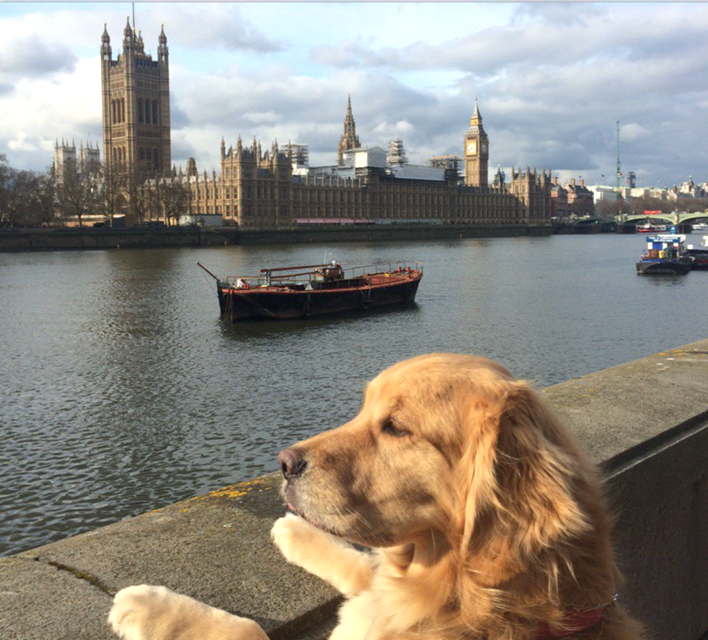Pooches, Planes, and Problems: How to Make International Pet Travel Easier
 "Why is it so hard to take a pooch on a plane?" That's the excellent (and frustrating) question explored in a recent NPR story.
"Why is it so hard to take a pooch on a plane?" That's the excellent (and frustrating) question explored in a recent NPR story.
In this nail-biting travel tale, author Donatella Lorch describes the complicated process of bringing her Rhodesian Ridgeback Biko safely from Kenya to Nepal to Turkey, and her worries about safety and basic logistical details will sound familiar to anyone who has every contemplated international pet travel.
Traveling with a pet internationally means following a precise series of veterinary and country import requirements, and unclear instructions and language barriers can often get in the way of clarity. Throw in a few additional complicating factors (having a large dog like Biko, for example), and it's easy to see why many people become overwhelmed and exhausted by the experience.
Lorch's question, "why is it so hard to fly with a pet?" is a good one. Here's a quick look at the answer as well as why we suggest passing the planning responsibilities on to pet travel experts rather than handling all of this alone:
Country Requirements
Every country has different rules when it comes to importing pets, so there is no "one size fits all" approach to meeting requirements. In general you'll need an up to date rabies vaccine as well as a microchip and health certificate, and sometimes an import permit and additional government endorsements are also needed. Our advice: as soon as you know you're moving, do your best to discover what these rules are and start putting a timeline together in order to avoid costly mistakes. Note: as Lorch experienced while trying to get Biko into Istanbul, not all the information you'll find online is accurate. Like it or not, a little detective work and lots of double checking will probably be in order.
Travel Crates
No matter where you're going, your pet will need an IATA approved pet travel crate. Not only is it important to have the right kind of kennel with the right dimensions for your pet's size, we also recommend spending plenty of time helping your pet acclimate to the crate in the weeks before the move. If your pet is comfortable spending time in the crate (remember how Biko would only go in the crate he was used to?), the relocation will go much more smoothly for them.
Airline Variability
Different airlines have different levels of dedication to pet safety, so we highly recommend researching this choice and selecting the most pet friendly airline possible. Carriers like United, KLM and Lufthansa have high standards when it comes to managing pets' trips, for example, while some smaller carriers have yet to make this a priority. You may not always have a choice, but if you do, try to go with an airline that prioritizes pet comfort and safety in the cargo area.
Complicating Factors
Beyond these basic considerations, other details tend to arise that can make a pet's move more difficult. As in Biko's case, having a big dog can create difficulties because not all planes are large enough to accommodate oversized pet travel crates. Routes can be an issue, too. If you're going to a more remote destination, you may have to get creative with routing and it's likely you won't have your first choice when it comes to your pet's flight reservation.
Solving the Pet Relocation Problem
Now, here's our question: knowing what's involved, is planning your pet's international relocation something you want to do on your own? Biko's family did it, but they had help from colleagues who spoke the language and narrowly evaded disaster more than once. If you'd rather minimize the chance for problems and remove much of the stress from the situation, consider enlisting the help of logistics specialists who are well versed in worldwide pet travel requirements and manage safe moves every day.
Hiring assistance adds additional costs to the overall move, but based on the regular feedback we receive from our globetrotting clients, it's well worth it when it means your furry family member is able to safely and smoothly join the family on your next adventure.
Here at PetRelocation, we believe that pets are family members, too. If you're moving for work or another reason and will be gone for more than a few months, it makes perfect sense to bring your pet along (and if you can, to make their travels a little less eventful than Biko's were).
